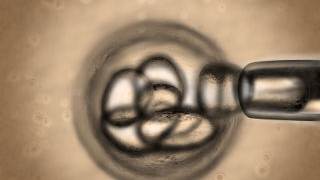European Court issues ruling to protect human embryos

One of Europe’s top courts has issued a landmark judgment which continues to protect human life at its earliest stages.
The European Court of Justice (ECJ) was asked to rule on a patent for a technique developed by Oliver Bruestle at the University of Bonn.
The technique involves the removal of a stem cell from a human embryo and then converting it into a nerve cell. This results in the embryo being destroyed.
The ruling concerned stem cells at the blastocyst stage, which begins five days after fertilisation when the human embryo consists of around 80 to 100 cells.
Bruestle developed the method with the hope of counteracting the effects of Alzheimer’s but a number of scientists in Europe are carrying out research into how embryonic stem cells can be used for a variety of conditions, including Parkinson’s disease and certain forms of blindness.
Critics of the use of stem cells argue that it is wrong because human embryos, which are left over from fertility treatment, are destroyed in the process.
A panel of 13 judges decided unanimously not to grant the patent. The ECJ stated simply: "A process which involves removal of a stem cell from a human embryo at the blastocyst stage, entailing the destruction of that embryo, cannot be patented."
In the judgment, the court stated that the decision was in keeping with European law, which protects human life at the embryo stage. The court referred to an EU directive on biotechnology patients, which "intended to exclude any possibility of patentability where respect for human dignity could thereby be affected."
The judges even ventured to call into question the morality of the proposed patent, saying: “Patents may not be granted for inventions whose commercial exploitation would be contrary to morality... In particular patents shall not be awarded for uses of human embryos for industrial or commercial purpose.”
Oliver Bruestle was disappointed at the judgment, believing that “It means European researchers can prepare these things but others will pick the fruits in the U.S. or Asia. That is very regrettable.”
Other European stem cell researchers are similarly upset that they will not be able to reap the financial benefits by taking their findings to medical companies.
Josephine Quintavalle from Comment on Reproductive Ethics said:
“We are a long way from a declaration on the inviolability of the human embryo but this is certainly a magnificent judgment in the right direction, and at the very least gives some added protection and respect to human life at its earliest stage.
“It is to be hoped that this will turn the attention of scientists once and for all away from the human embryo to concentrate on the innumerable ethically sourced neonatal and adult stem cell therapies which are already available.”
Sources
Resource
